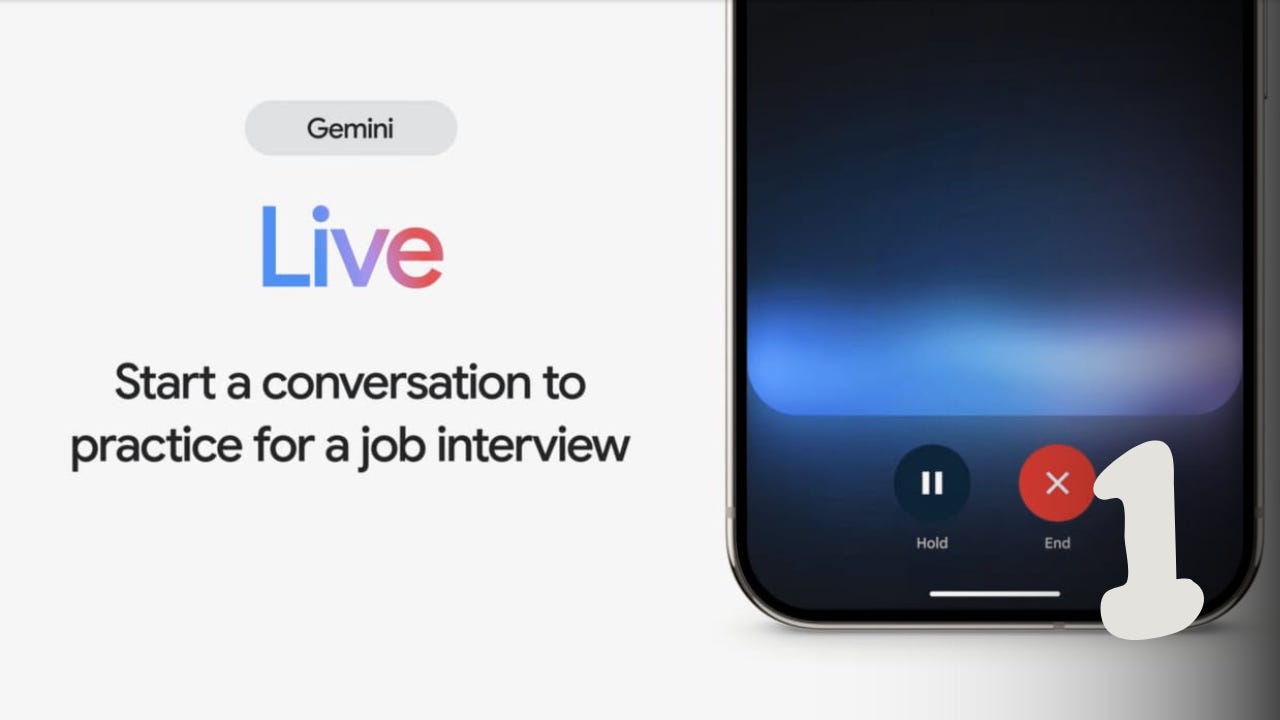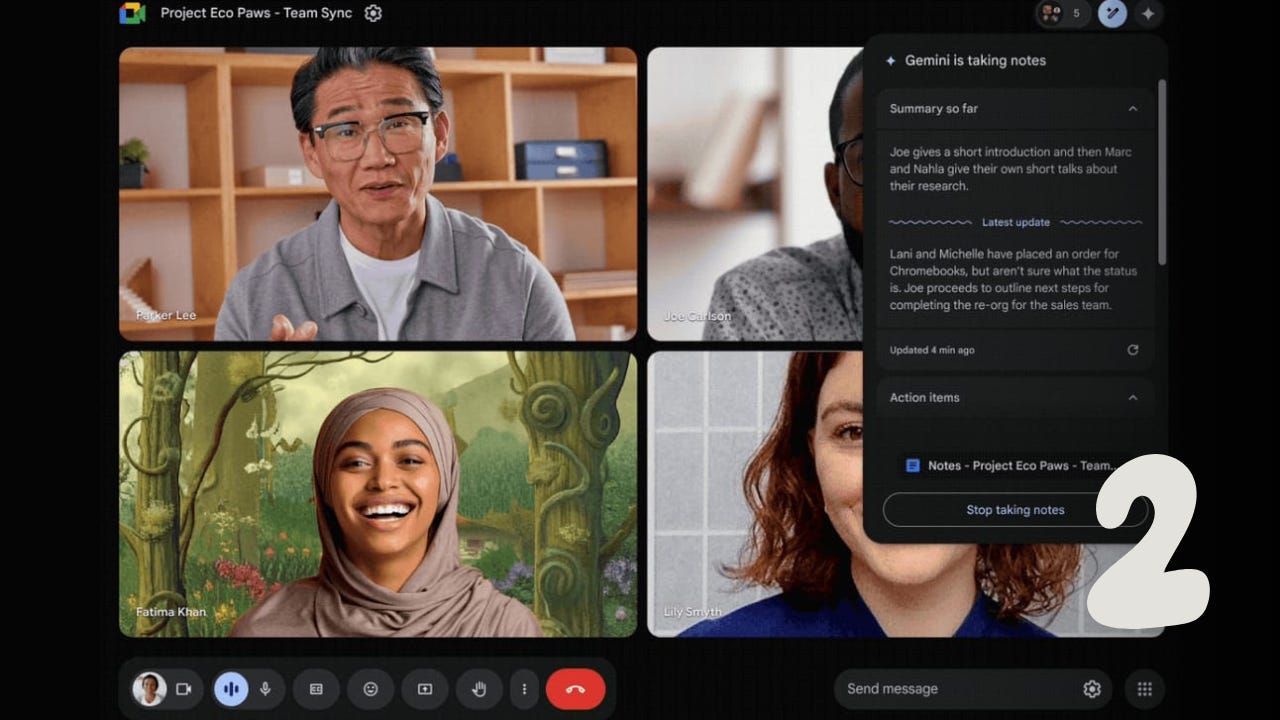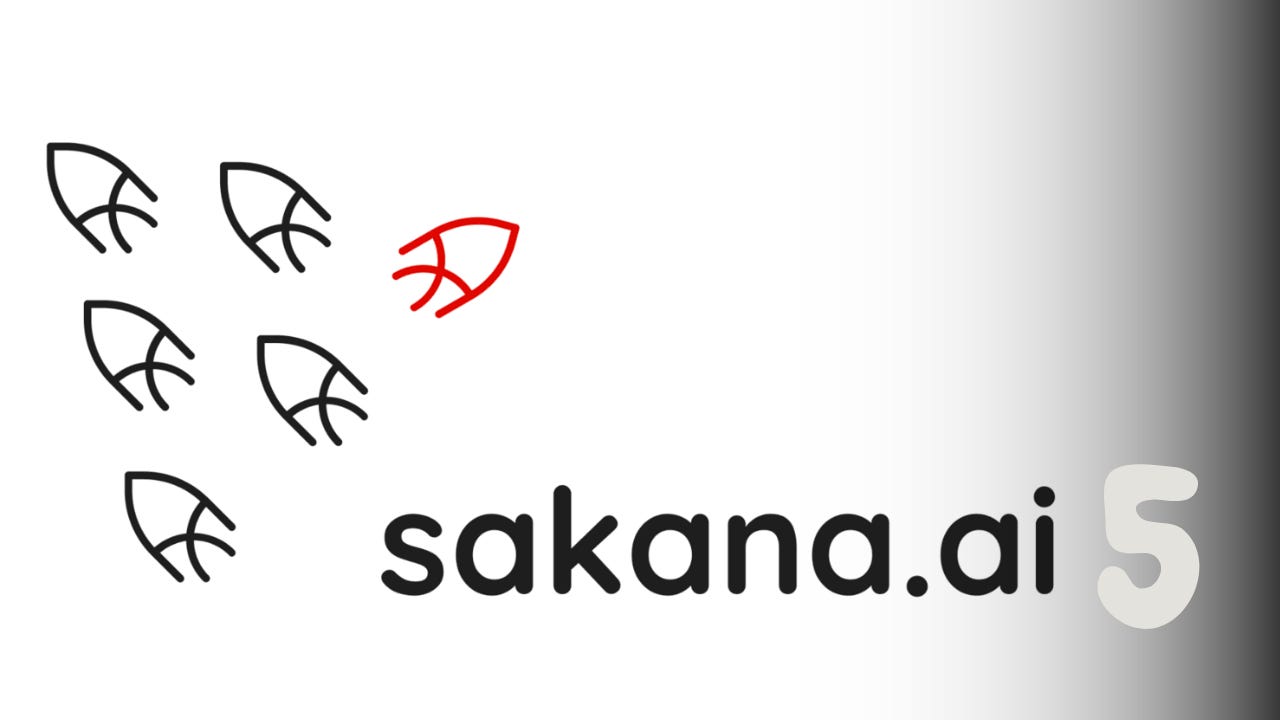🎉 Google Conversational AI, Meets Note Taking, FCC Bans AI-Voice Spam, Microsoft & Palantir Partner with DOD, Rise of the AI-Scientist
Google Leans into Speech, Take Notes Google Meets, AI-Spam Calls Be Gone, DOD Shakes Hands with Palantir & Microsoft, AI-Agent Scientific Research & Papers
Welcome to this week’s edition of AImpulse, a five point summary of the most significant advancements in the world of Artificial Intelligence.
Here’s the pulse on this week’s top stories:
What’s Happening: Google just launched Gemini Live, a mobile conversational AI with advanced voice capabilities, while OpenAI’s ChatGPT voice mode remains in its “limited alpha phase” and is not yet available to everyone.
The details:
Gemini Live, Google’s answer to OpenAI’s Advanced Voice Mode, is capable of “in-depth“ hands-free conversations and has 10 different human-like voice options.
Users can interrupt and ask follow-up questions mid-response, mimicking natural conversation flow — however Gemini Live’s ability to see and respond to your camera view is planned later this year.
Similar to Apple’s upcoming Intelligence features, Gemini integrates directly with Google to provide context-aware answers without switching apps.
Gemini Live is now the default assistant on Google’s Pixel 9 and is available today to all Gemini Advanced subscribers on Android (coming to iOS soon).
Why it matters: Real-time voice is slowly shifting AI from a tool we text/prompt with, to an intelligence that we collaborate, learn, consult, and grow with. As the world’s anticipation for OpenAI’s unreleased products grows, Google has swooped in to steal the spotlight as the first to lead widespread advanced AI voice rollouts.
What’s Happening: Google is rolling out a new "Take notes for me" feature powered by its Gemini AI for it’s Google Meet feature, allowing users to focus on the meeting while the AI automatically captures key points.
The details:
The AI-powered tool will automatically take notes during Google Meet calls, reducing the need for manual note-taking.
The feature is powered by Google's Gemini AI and will be available to Workspace customers with specific add-ons.
"Take notes for me" is part of the AI Meetings and Messaging add-on, which costs $10 per user/month across most Google Workspace plans.
Admins can configure the feature's availability through the Google Workspace Admin console.
Why it matters: Taking notes during meetings will soon be a thing from our prehistoric, non-AI past — with Google pushing for a more practical, AI-assisted future of work. Alongside this, the tech giant is directly competing against smaller AI startups such as Otter AI and Fireflies who’ve thrived by selling a nearly identical features to users.
What’s Happening: The U.S. Federal Communications Commission (FCC) just proposed new regulations requiring AI-generated voice calls to disclose the use of artificial intelligence.
The details:
The proposal aims to combat the rise of AI-generated voices in unwanted and potentially fraudulent ‘robocalls’.
AI voices would be required to explicitly state they are artificial at the beginning of calls.
The FCC is also exploring tools to alert people when they receive AI-generated calls and texts, including enhanced call filters, AI-based detection algorithms, and improved caller ID flagging.
Why it matters: As AI voices become indistinguishable from human speech, these regulations are crucial in combating highly targeted scams. But with enforcement likely to be a cat-and-mouse game against scammers, the best defence is education—especially for those most vulnerable to AI deception.
What’s Happening: Microsoft and Palantir just partnered to deliver advanced AI, including GPT-4, and analytics capabilities to U.S. Defense and Intelligence agencies through classified cloud environments.
The details:
The partnership integrates Palantir's AI Platforms with Microsoft's Azure OpenAI Service in classified clouds.
The aim is to safely and securely enable AI-driven operational workloads across defense and intelligence sectors.
OpenAI’s models, including GPT-4, will be leveraged by the U.S. government to develop innovations for national security missions.
Why it matters: AI being trusted with classified documents is a big leap in its acceptance as a useful tool for humanity. However, it does feel a bit unsettling knowing that OpenAI’s models are being used at the government level, with the safety team completely dissolving last month and the still uncovered mysteries surrounding Q*.
What’s Happening: Tokyo-based Sakana AI just introduced "The AI Scientist," the world’s first AI system capable of autonomously conducting scientific research — potentially revolutionizing the scientific process.
The details:
The system generates new research ideas, writes code, runs experiments, writes papers, and performs its own peer review with near-human accuracy.
Sakana AI envisions a future where we won't just see an autonomous AI researcher but also autonomous reviewers, area chairs, and entire conferences.
The AI Scientist has already produced papers with novel contributions in machine learning domains like language modeling and diffusion models.
Each paper only costs approximately $15 to produce, which could potentially democratize research capabilities.
Why it matters: This breakthrough could dramatically accelerate scientific progress by allowing researchers to collaborate with AI agents and automate time-consuming tasks. We're entering a new era where academia could soon be powered by a tireless community of AI agents, working round-the-clock on any problem they're directed to.






